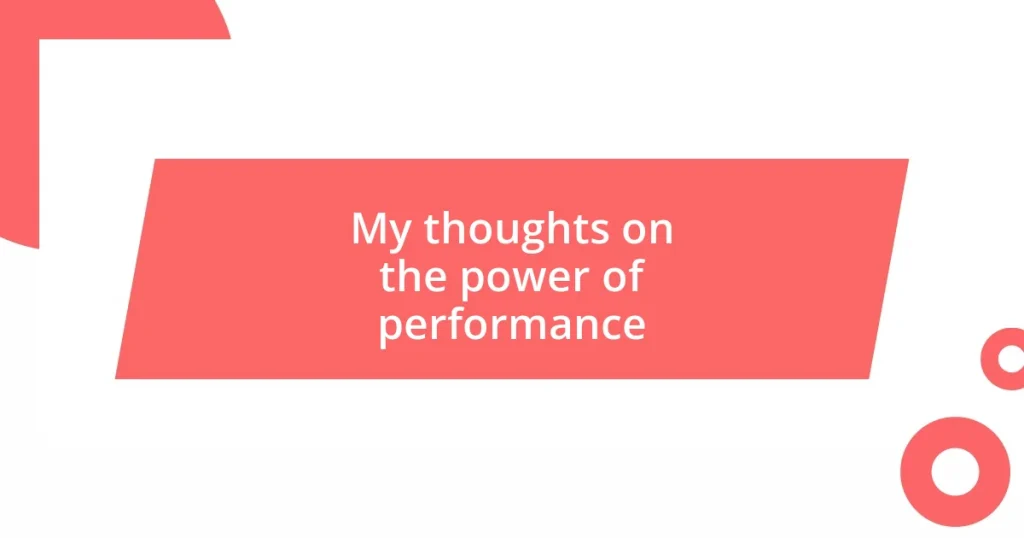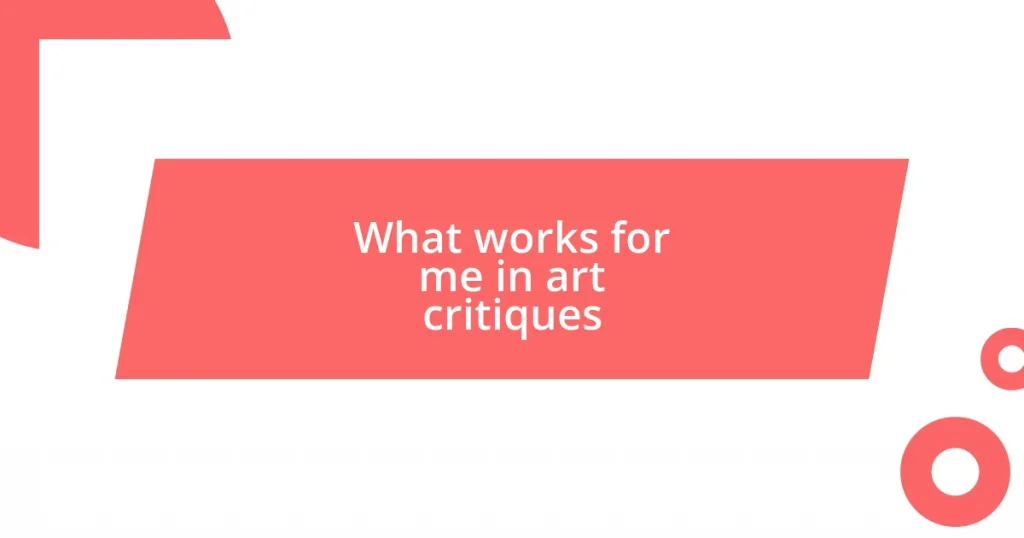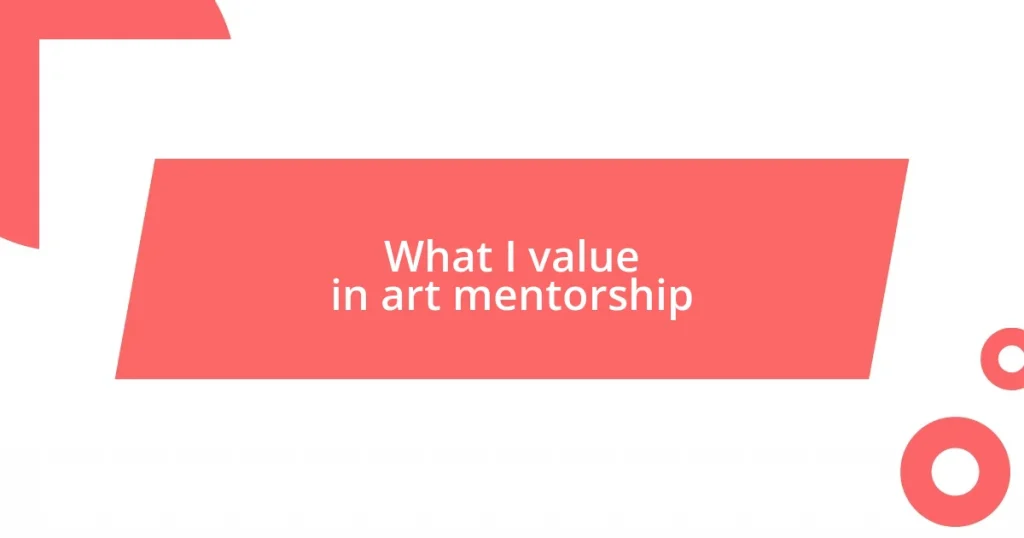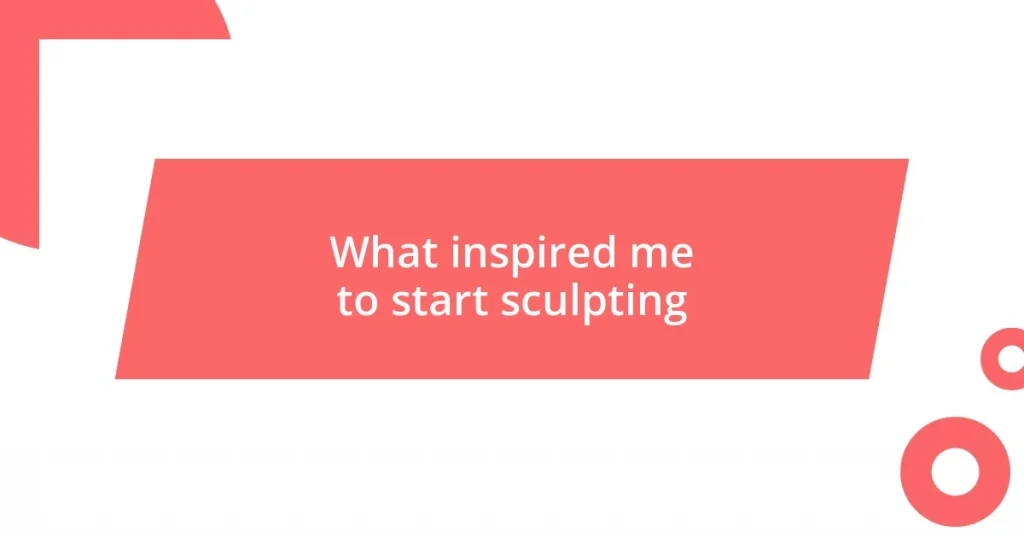Key takeaways:
- Performance is influenced by context, relationships, and cultural factors, which shape how success is perceived.
- Effective techniques like mental visualization, goal setting, and constructive feedback can enhance performance and motivation.
- Embracing a growth mindset and reframing challenges can lead to sustainable performance improvement and resilience in facing setbacks.
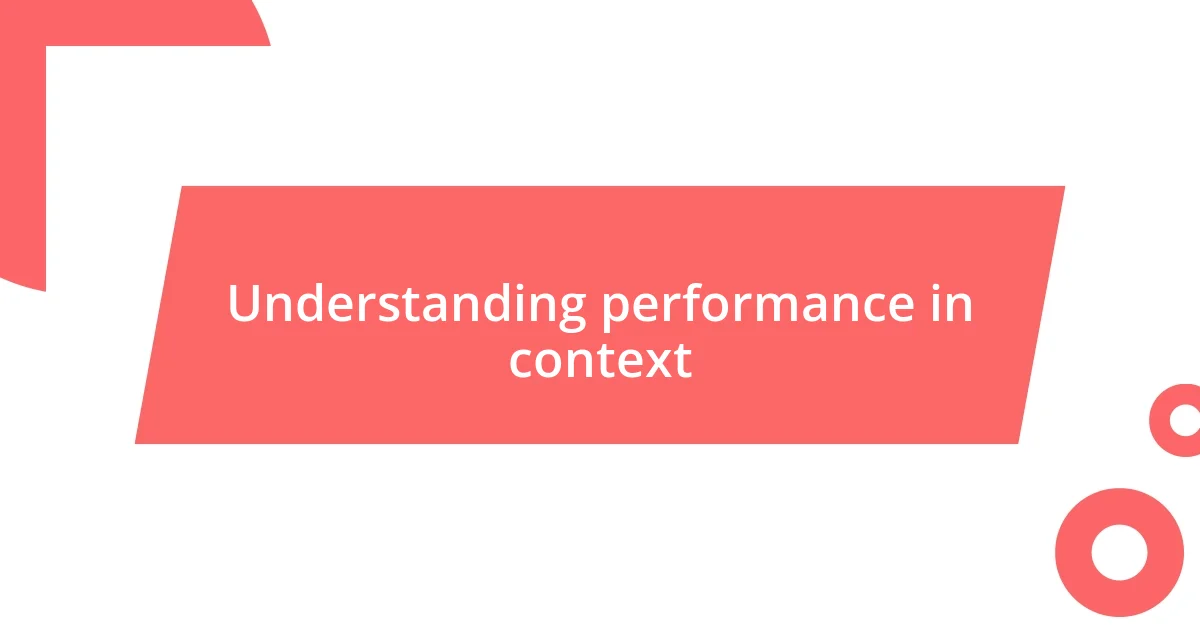
Understanding performance in context
Performance doesn’t exist in a vacuum; it’s deeply influenced by context. I remember a time when I was preparing for a presentation at work. Despite knowing my material, anxiety took over because of the overwhelming office atmosphere. It struck me then just how much environment affects our ability to perform effectively.
When I think about performance, I often consider the relationships involved. For example, during a team project, I witnessed how collaboration energized our productivity. Have you ever experienced a moment where a supportive network made all the difference? It’s fascinating how the right people can elevate your performance, turning pressure into motivation.
Moreover, cultural factors play a huge role in understanding performance. Reflecting on my travels, I noticed that different countries value accomplishments in unique ways. For instance, in some cultures, teamwork is prioritized, while in others, individual achievements are celebrated. This realization made me ponder, how can our own backgrounds color the way we perceive success? Understanding these nuances can truly reshape how we measure performance in ourselves and others.
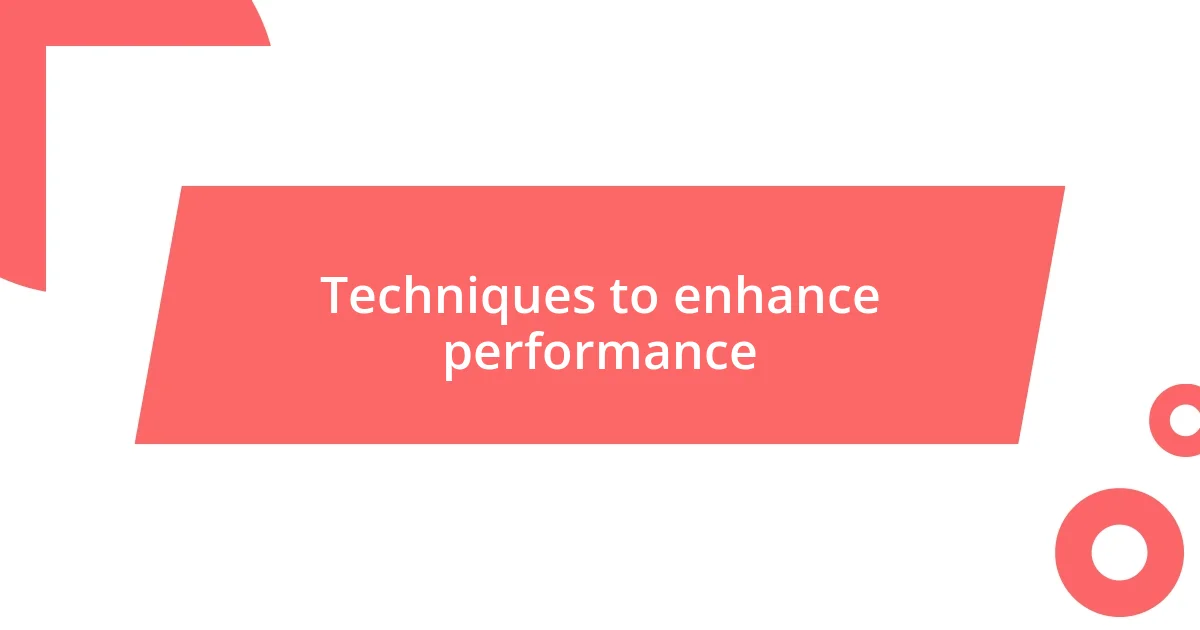
Techniques to enhance performance
Exploring techniques to enhance performance is truly fascinating. One method I often rely on is mental visualization. Before a major task, I close my eyes and envision the process and outcomes in detail. This mental rehearsal not only calms my nerves but also sets a clear pathway for my actions. Have you ever pictured yourself succeeding before tackling a big challenge? It can make a world of difference.
Another effective technique is setting specific, measurable goals. In my experience, breaking down larger tasks into smaller, achievable milestones helps maintain focus and motivation. I recall preparing for a marathon and dividing my training into weekly objectives. Each completed run boosted my confidence and kept me on track. What strategies have you used to hit your personal targets?
Lastly, incorporating regular feedback can significantly boost performance. I remember a time when I sought feedback from colleagues after a presentation. Their insights helped refine my approach for future engagements. It’s illuminating how constructive criticism can guide us to improve our efforts. Have you found value in receiving feedback? It can be a game changer.
| Technique | Description |
|---|---|
| Mental Visualization | Envisioning success to calm nerves and set clear pathways. |
| Goal Setting | Breaking tasks into smaller milestones to maintain focus and motivation. |
| Feedback Incorporation | Using constructive criticism to refine your approach and enhance skills. |
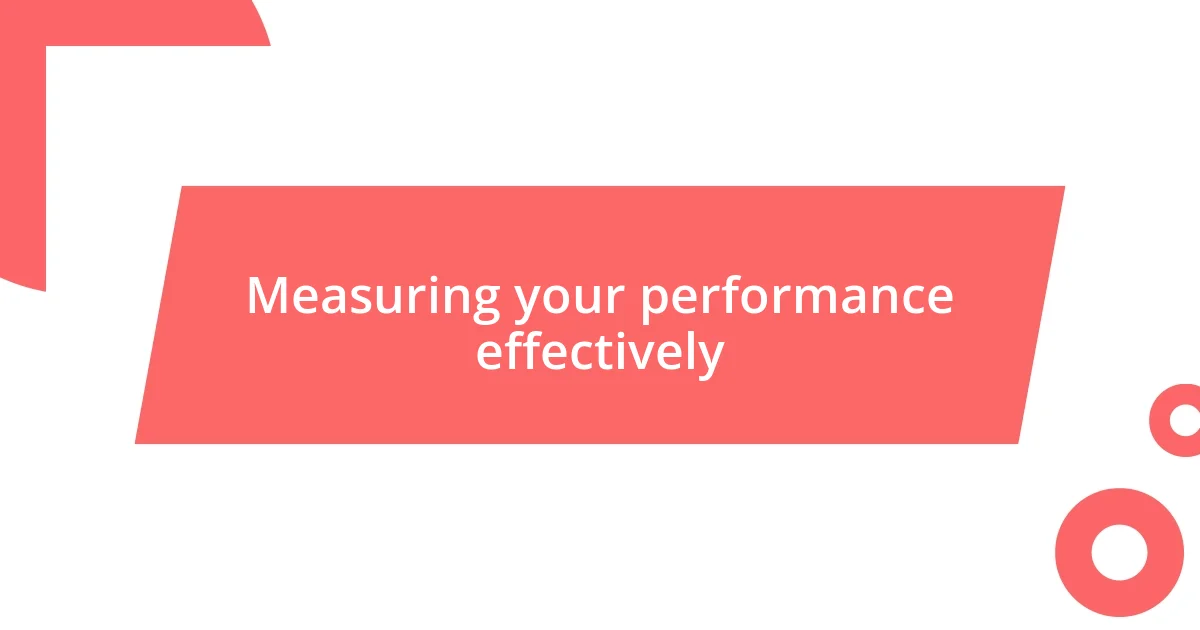
Measuring your performance effectively
Measuring performance effectively can sometimes feel like trying to hit a moving target. In my experience, having clear benchmarks can truly clarify where you stand. For instance, during a recent project, I tracked my progress weekly against specific goals, which not only kept me accountable but also highlighted areas needing improvement. It’s like having a roadmap; without it, you might get lost along the way.
- Define clear, measurable objectives to guide your performance assessment.
- Utilize regular check-ins to reflect on progress and adapt as needed.
- Embrace quantitative metrics, such as completion rates, alongside qualitative feedback for a comprehensive view.
To really gauge performance, I’ve found that self-reflection can be incredibly powerful. After finishing a project, I often take some time to analyze what went well and what could have been better. I remember doing this after leading a team initiative; I noted that while we hit our targets, my communication could have been clearer. By embracing this reflective practice, I not only celebrate successes but also identify steps for future improvement. It’s about growing from experiences, and that journey can be profoundly rewarding.
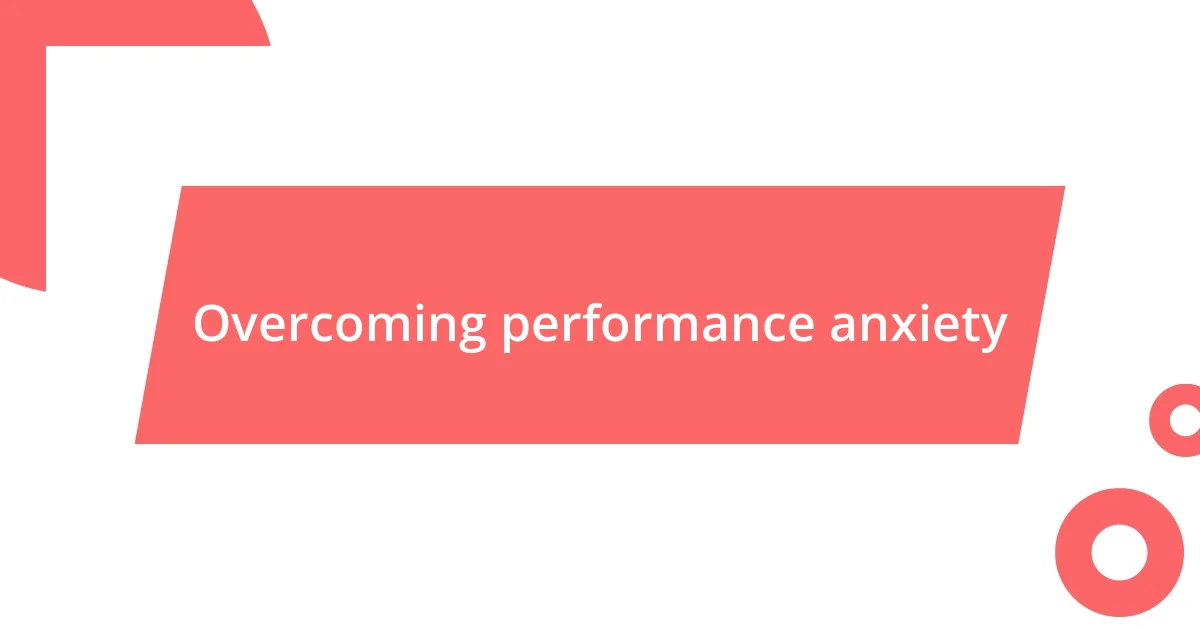
Overcoming performance anxiety
Overcoming performance anxiety is a journey I’ve navigated many times. One technique that has truly helped me is deep breathing. Before stepping onto a stage or entering a high-pressure meeting, I take a moment to close my eyes and focus on my breath. It’s amazing how just a few deep breaths can ground me, enabling me to approach the situation with clarity. Have you ever tried this? It can shift your entire mindset.
Another powerful strategy for me has been embracing vulnerability. I often remind myself that everyone experiences some level of anxiety; it’s a shared human experience. For instance, during a particularly nerve-wracking presentation, I openly acknowledged my nerves to the audience. Surprisingly, this connection eased the tension not just for me, but for everyone in the room. Have you considered sharing how you feel in those moments? It could create an unexpected bond.
Lastly, reframing my thoughts has been crucial. Instead of viewing performance as a make-or-break situation, I approach it as an opportunity to learn and grow. I remember a time when things didn’t go as planned during a speech; instead of feeling defeated, I reflected on what I could refine for next time. Shifting my perspective in this way transformed my approach to performance. What if you could look at every challenge as a chance to expand your skills? It might just change how you approach each situation.
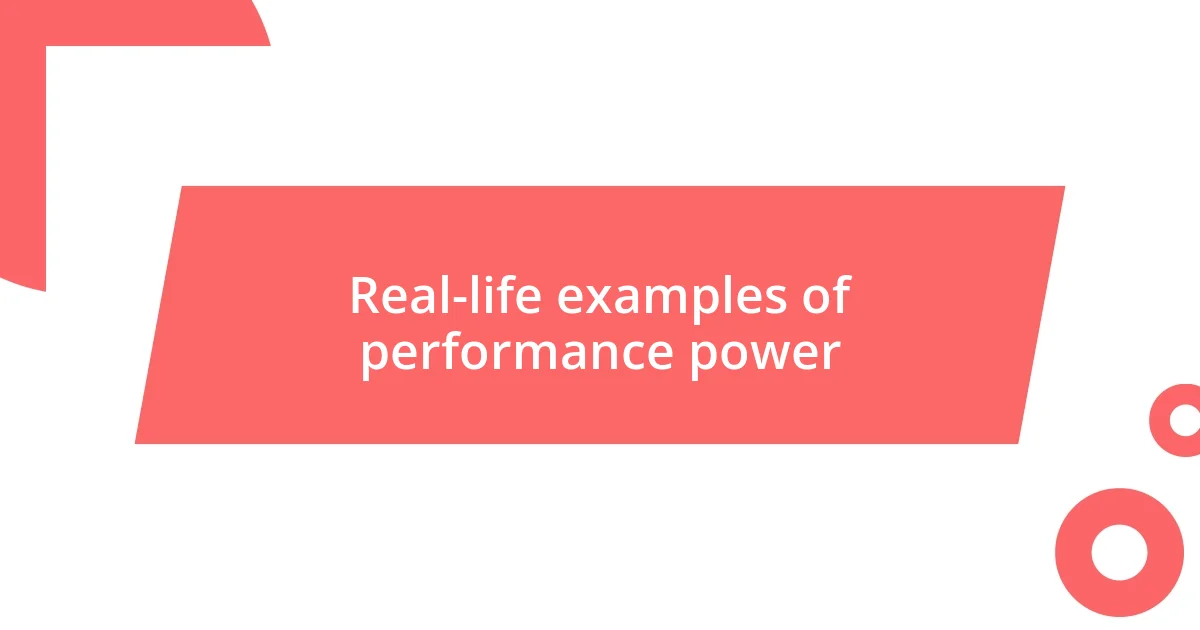
Real-life examples of performance power
One vivid example that comes to mind is when I participated in a community theater production. The no-show of our lead actor just days before opening night threw everything into chaos. I volunteered to step in, and while it was a nerve-racking experience, I found an unexpected power in rising to that challenge. It felt like adrenaline coursing through my veins, reminding me that performance isn’t just about delivering lines; it’s about connecting with an audience in a genuine way. Have you ever felt that rush when you had to step up unexpectedly?
Another powerful instance was during a corporate presentation where I shared a project proposal. Initially, I was overwhelmed with anxiety, but as I began to speak, I noticed the room’s energy shifted. Engaging with my audience eye-to-eye made all the difference. It transformed my nervousness into enthusiasm, creating a dynamic where they were actively leaning in. Isn’t it fascinating how a simple eye contact can build a bridge of connection and trust?
Lastly, I can’t forget the local charity fundraising event where I performed live music. The performance was about much more than just playing an instrument; it was about pouring my heart into every note. I vividly recall looking out at the crowd, their smiles reflecting their appreciation. It was a powerful reminder that when we perform authentically, we can impact others deeply. Have you ever experienced that joy of sharing your passion and seeing it resonate with others? It’s moments like those that reaffirm the true power of performance.
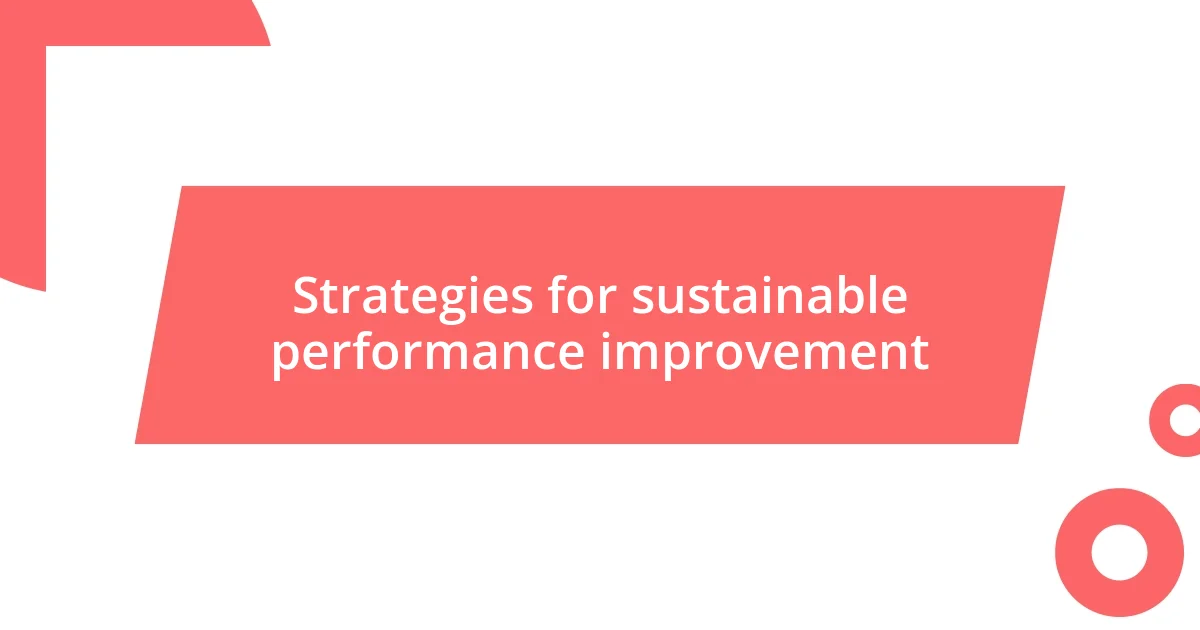
Strategies for sustainable performance improvement
One of the most effective strategies I’ve found for sustainable performance improvement is setting clear, achievable goals. When I was training for a half-marathon, I broke my overall aim into smaller milestones. Each time I hit a new distance or improved my pace, it fueled my motivation and built my confidence. Have you considered how setting incremental goals could benefit your own performance journey?
Incorporating consistent feedback is another powerful approach. I remember a time when I sought constructive criticism after a presentation at work. My colleagues provided insights that I never would have recognized on my own. This not only helped me to refine my skills but also fostered a sense of camaraderie. It made me realize that feedback is not just about improvement; it’s also about growth as a team. How have you used feedback to enhance your performance?
Lastly, I’ve discovered that maintaining a growth mindset plays a crucial role in sustaining performance. One instance that stands out was when I faced a particularly challenging project at work. Instead of getting discouraged by setbacks, I embraced each obstacle as a learning opportunity. This shift in mindset allowed me to develop resilience and creativity in problem-solving. Do you think adopting a growth mindset could reframe how you face challenges? It’s an empowering way to approach both successes and failures.










